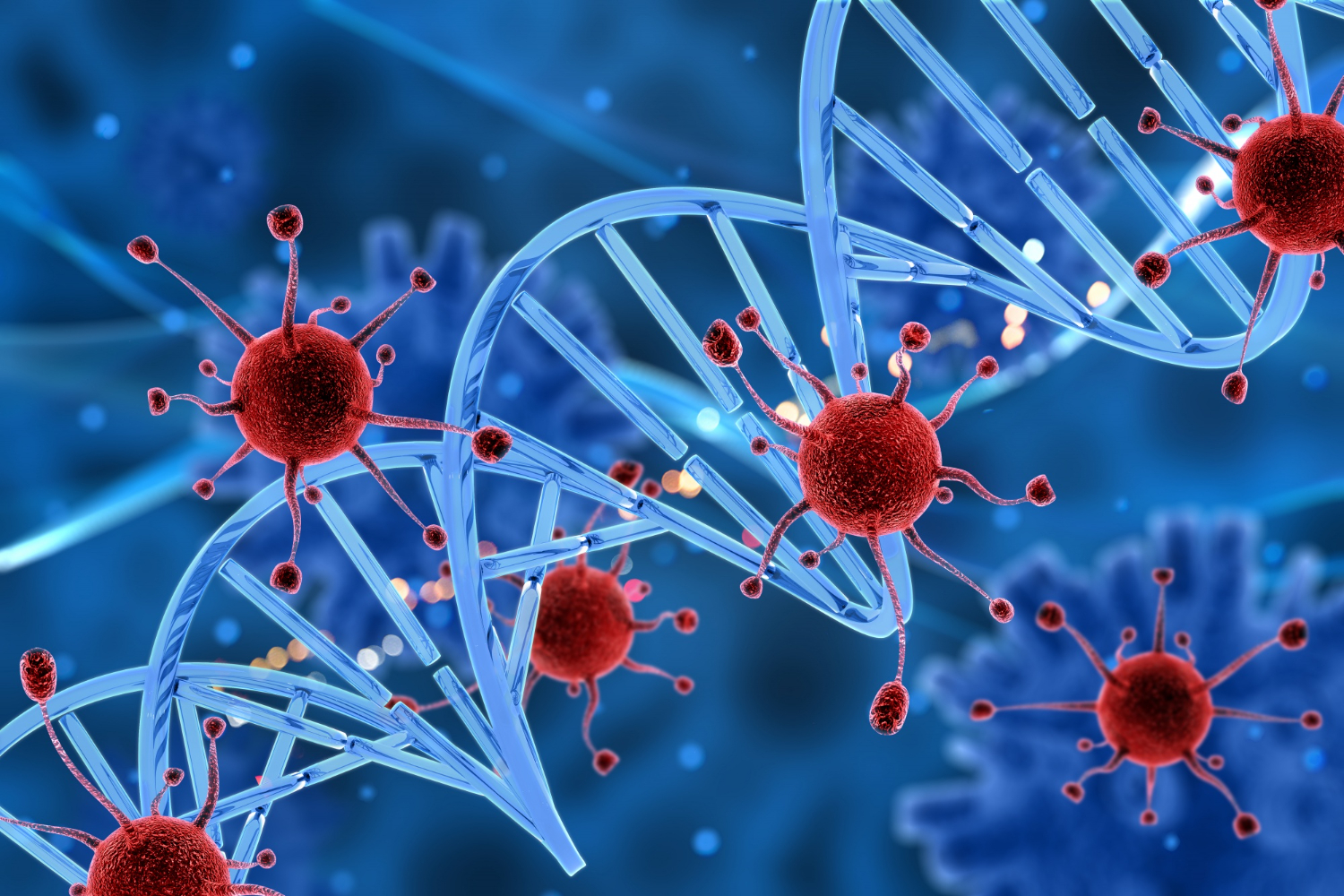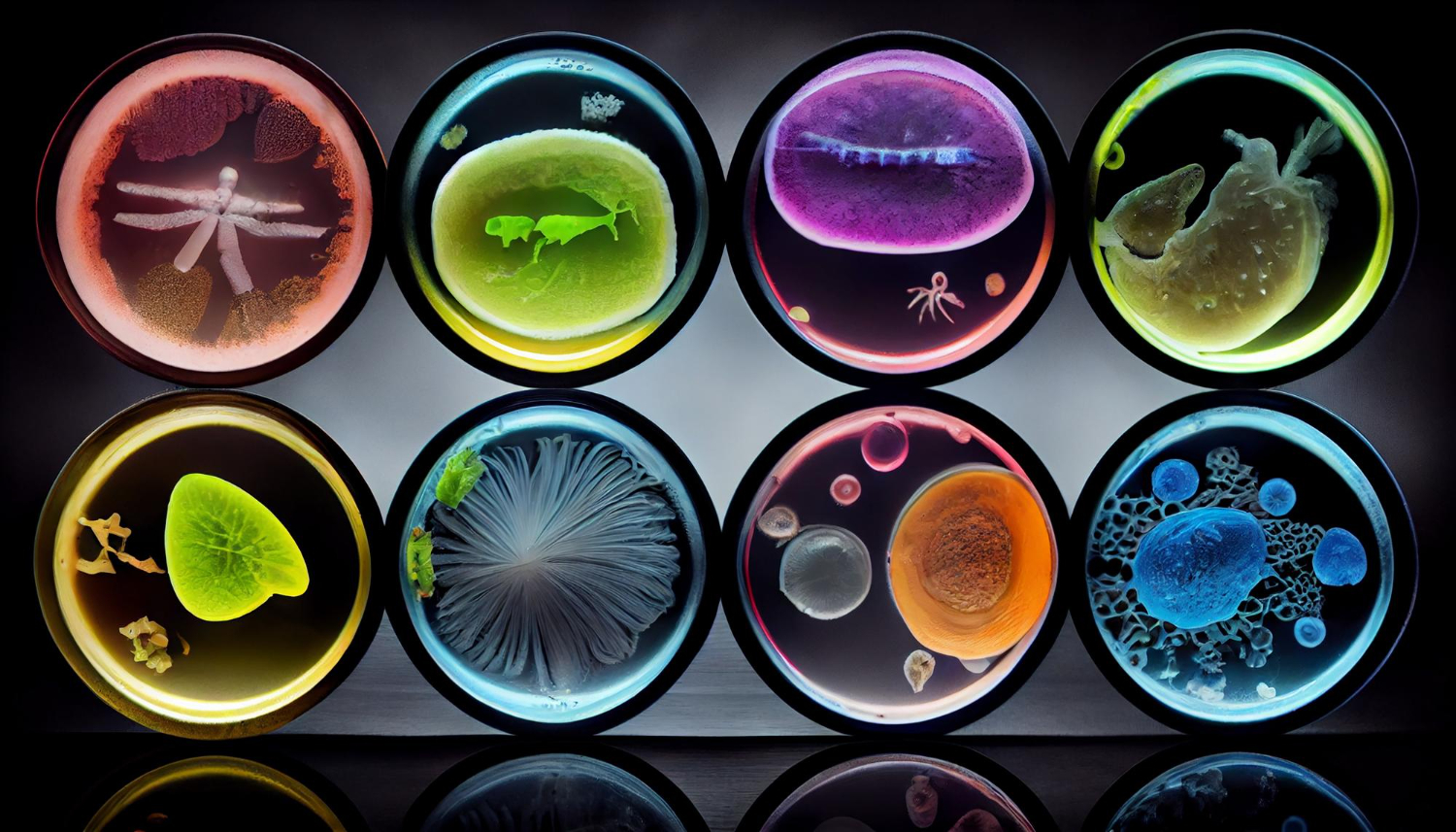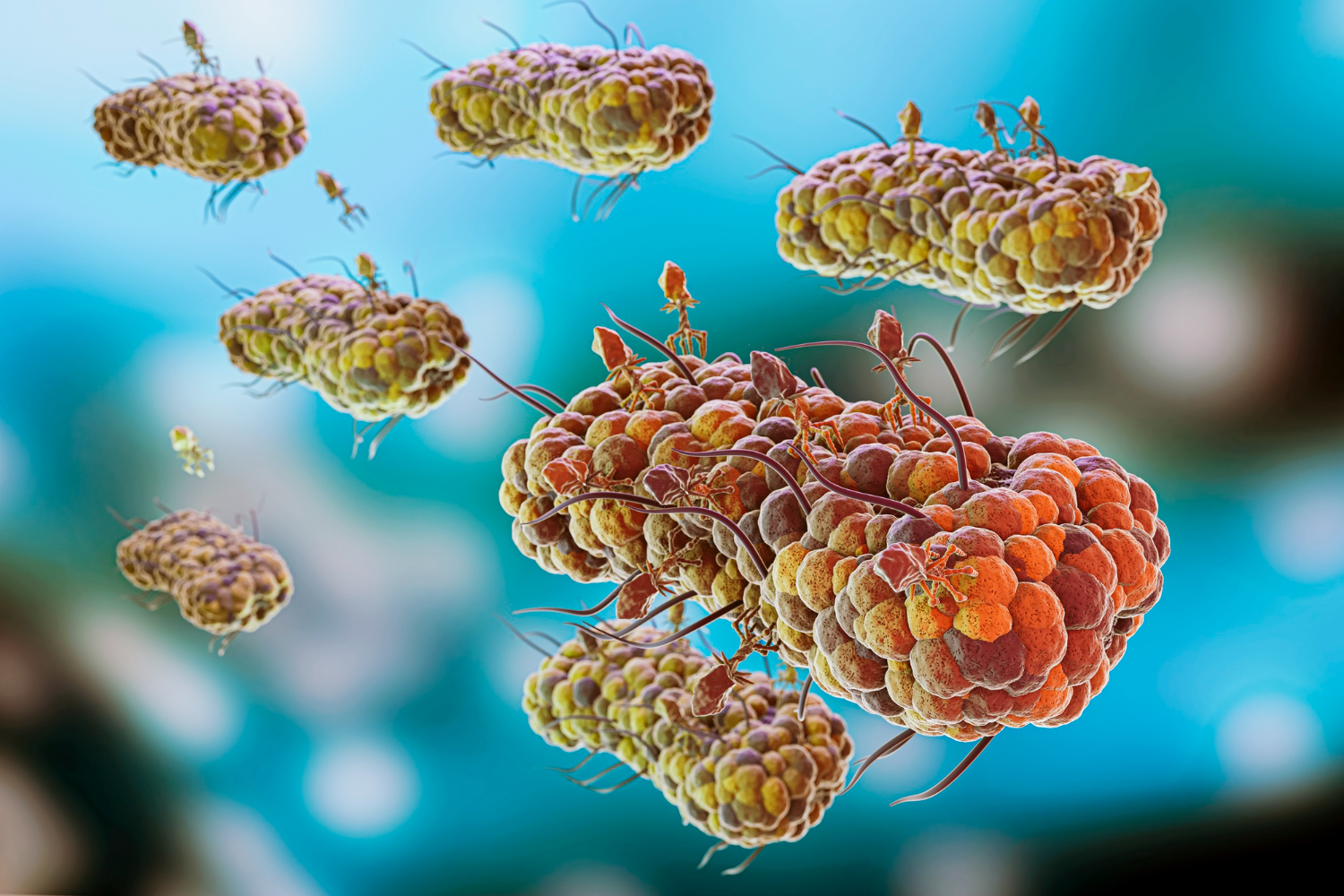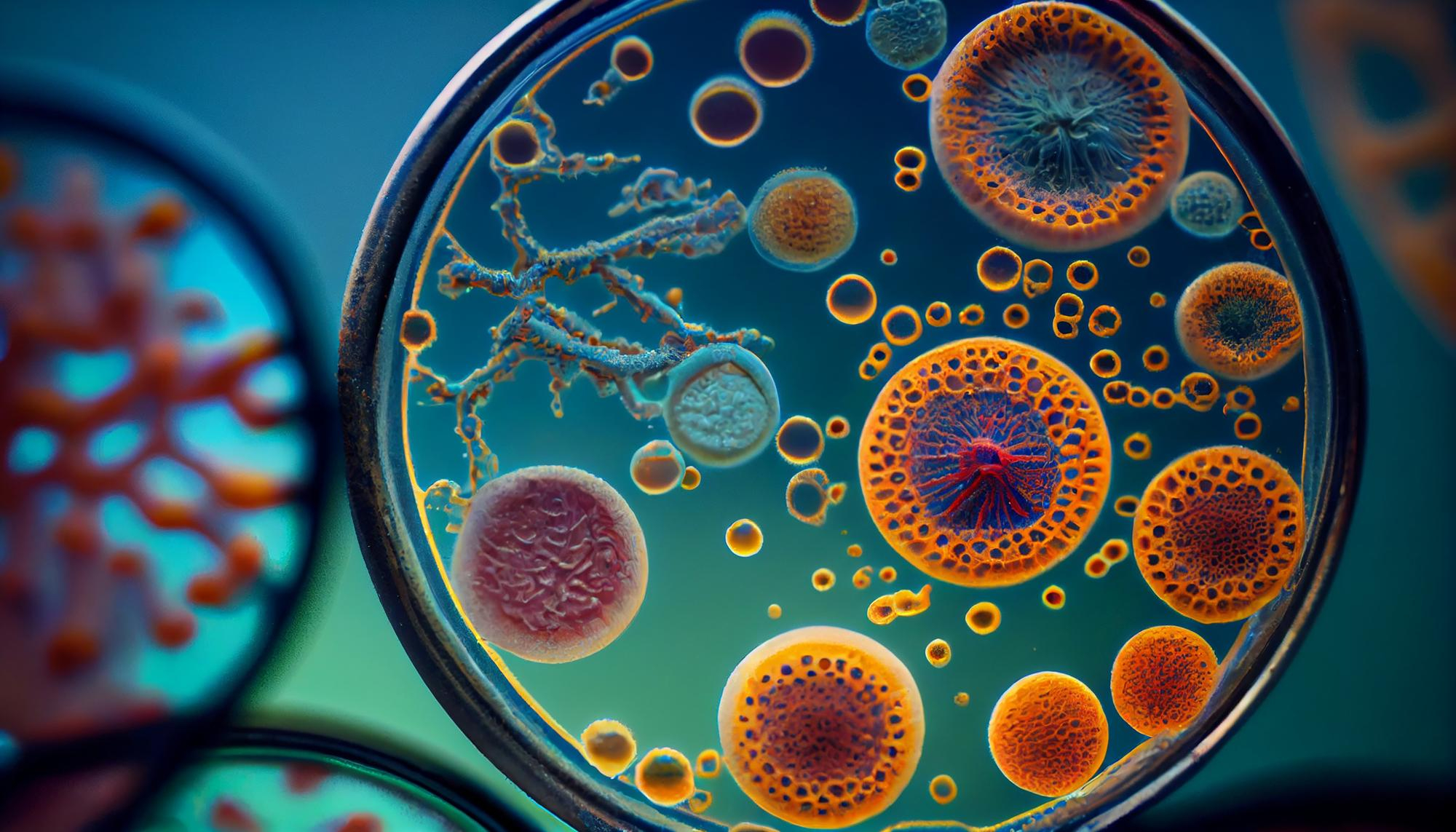Microbiology Mysteries Unraveled* Pathogen Origins Revealed: Through advanced genetic sequencing, researchers have uncovered the origins of some of the most elusive pathogens, shedding light on their evolution and how they may have jumped species boundaries.
- Antibiotic Resistance Mechanisms Unveiled: By studying the intricate mechanisms behind antibiotic resistance in bacteria, scientists have made breakthroughs in understanding how resistance spreads and how to combat it effectively.
- Novel Microbial Interactions Discovered: Exploration into microbial communities has led to the discovery of unique interactions between different microorganisms, unveiling complex symbiotic relationships that play crucial roles in various ecosystems.
The Fascinating World of Microbes
- Diverse Ecosystems: Microbes thrive in diverse environments, from deep-sea vents to the human gut.
- Biotechnological Potential: Microbes are used in various biotechnological applications, such as producing antibiotics and enzymes.
- Role in Health: Some microbes are beneficial for human health, aiding in digestion and supporting the immune system.
The vast world of microbes offers a myriad of opportunities for research and innovation across different fields, showcasing the significance of these tiny organisms in our ecosystems and daily lives.
Research in microbiology continues to uncover new insights into the roles that microbes play in diverse ecosystems. Scientists are exploring the potential applications of microbes in sustainable agriculture, environmental remediation, and even biofuel production. As our understanding of microbes deepens, the possibilities for harnessing their capabilities for the benefit of society are expanding, making the study of these tiny organisms an exciting and promising field of research.
Introduction to Microbiology
Microbiology is the study of microorganisms, such as bacteria, viruses, fungi, and parasites. These tiny organisms play a crucial role in various aspects of life, from human health to the environment. By understanding microbiology, we can delve into how these microorganisms interact with their surroundings and how they impact our daily lives.
Microbiologists study the structure, function, and behavior of microorganisms to uncover their potential benefits and risks. They explore how microorganisms can be harnessed for purposes such as biotechnology, food production, and environmental sustainability. Additionally, understanding microbiology is essential for developing strategies to combat infectious diseases and protect public health.
Microbiologists also play a vital role in research and development, working on innovative solutions to address emerging health threats and environmental challenges. By studying the genetic makeup of microorganisms, microbiologists can identify new strains, develop vaccines, and improve diagnostic tools. Their work contributes to advancements in medicine, agriculture, and biotechnology, shaping the way we understand and interact with the microbial world.

Importance of Microbes in Our Ecosystem
Microbes play a crucial role in our ecosystem. They help with nutrient recycling, breaking down organic matter, and even producing oxygen. These tiny organisms are essential for maintaining the balance of our environment and supporting the health of plants, animals, and humans alike. Their diverse functions highlight the interconnectedness of all living organisms in our ecosystem.
Microbes are not only vital for ecological balance, but they also have significant impacts on human health. For instance, the human gut microbiome plays a crucial role in digestion, immune system function, and even mental health. Understanding the complex relationships between microbes and their environment is essential for preserving biodiversity and promoting overall well-being in both natural ecosystems and human populations.
Unveiling Microbiology Mysteries
Unveiling Microbiology Mysteries* Diverse Microbial World: Microbiology uncovers a vast array of microorganisms living in different environments, from the depths of the ocean to soil and even human bodies.
- Impact on Health: Understanding microbiology helps in combating diseases caused by harmful microbes and harnessing the benefits of beneficial ones for medical treatments and food production.
- Environmental Role: Microorganisms play a crucial role in nutrient cycling, decomposition, and maintaining ecosystem balance, highlighting their significance in our natural world.
Antibiotic Resistance: How Microbes Outsmart Us
Antibiotic resistance is a growing concern in healthcare. Microbes evolve quickly, developing ways to outsmart the antibiotics used to treat infections. This can lead to infections that are difficult, or even impossible, to treat. To combat this issue, it is crucial to use antibiotics judiciously, follow proper hygiene practices, and invest in research for new antibiotics.
Public awareness and education also play a key role in addressing antibiotic resistance. By educating the public on the importance of proper antibiotic use, the risks of misuse, and the impact of antibiotic resistance on global health, individuals can make more informed decisions about their healthcare. Additionally, healthcare providers can play a vital role in prescribing antibiotics responsibly and discussing the risks and benefits with their patients to help prevent the spread of antibiotic resistance. Collaboration between healthcare professionals, researchers, policymakers, and the public is essential in tackling this critical issue in healthcare.
Viral Evolution: The Constant Arms Race
Viral Evolution: The Constant Arms Race* Adaptation: Viruses constantly evolve to evade the immune system or resist medication. This evolutionary arms race is a key factor in the cycle of infection and immunity.
- Genetic Diversity: The rapid mutation rates of viruses lead to genetic diversity. This diversity can enhance the virus’s ability to infect new hosts or cause outbreaks.
- Selective Pressure: Environmental factors and host responses exert selective pressure on viruses. This pressure drives the evolution of new viral strains that may pose challenges in disease management.
The dynamic nature of viral evolution highlights the need for ongoing surveillance and research to stay ahead of emerging threats.
Microbial Diversity: The Hidden Kingdoms
Microbial diversity in hidden kingdoms reveals a vast array of microscopic life forms. These tiny organisms play crucial roles in various ecosystems, from soil health to human gut flora. Exploring these hidden kingdoms can lead to groundbreaking discoveries in medicine, agriculture, and environmental conservation.
Studying microbial diversity provides valuable insights into the intricate relationships between different organisms and their environments. By uncovering the roles these microscopic life forms play in maintaining ecosystem balance, researchers can develop innovative solutions for challenges such as disease treatment, sustainable agriculture practices, and biodiversity conservation. The exploration of hidden kingdoms offers a wealth of opportunities for scientific advancement and practical applications across diverse fields.
Tools and Techniques in Microbiology
Microbiology relies on various tools and techniques for research and analysis. Microscopes are essential for observing microorganisms, while culture media help grow and identify different species. Polymerase chain reaction (PCR) is used to amplify DNA for further study, and staining techniques like Gram staining aid in classifying bacteria. These tools and techniques are crucial in advancing our understanding of the microbial world.
Additionally, next-generation sequencing (NGS) technologies have revolutionized microbiology by enabling researchers to study the genetic makeup of microorganisms in greater detail. Metagenomics, metatranscriptomics, and metaproteomics are powerful tools that allow for the analysis of entire microbial communities and their functions. By combining traditional techniques with these cutting-edge tools, microbiologists can uncover new insights into the diversity, evolution, and interactions of microorganisms in various environments.

Microscopy: Peering into the Microbial World
Microscopy allows scientists to peer into the microbial world, revealing a hidden realm of tiny organisms. By magnifying these minuscule creatures, researchers can study their structures and behaviors, unlocking valuable insights into how they interact with their environment. This deeper understanding is crucial for fields like microbiology and environmental science, where microbes play a significant role in various processes.
Microscopy has revolutionized scientific research by enabling scientists to explore the intricate details of microbial communities, paving the way for groundbreaking discoveries. Through advanced imaging techniques such as electron microscopy and fluorescence microscopy, researchers can delve into the complex ecosystems of bacteria, viruses, and other microorganisms, shedding light on their diversity, interactions, and ecological functions. This wealth of information not only enhances our knowledge of the microbial world but also fosters innovations in biotechnology, medicine, and environmental conservation.
Next-Generation Sequencing: Decoding Microbial Genomes
Next-Generation Sequencing (NGS) technology has revolutionized the field of microbiology by allowing for rapid decoding of microbial genomes. This advanced method enables researchers to analyze complex microbial communities with high precision, providing valuable insights into their genetic diversity and functional capabilities. With the ability to sequence multiple genomes simultaneously, NGS has accelerated the pace of microbial genomics research, opening up new avenues for studying microbial evolution and interactions in various environments.
NGS technology has also significantly impacted clinical microbiology by facilitating the identification of pathogens and antimicrobial resistance genes in a timely manner. The rapid and comprehensive nature of NGS analysis allows for more accurate diagnostics and treatment strategies, ultimately improving patient outcomes. Furthermore, this technology has the potential to enhance surveillance efforts for infectious diseases and aid in the development of targeted therapies based on genomic data. As NGS continues to evolve and become more accessible, its applications in microbiology are expected to further advance our understanding of microbial ecosystems and improve public health interventions.
Culturing Techniques: Growing Microbes in the Lab
Controlled Environment: Culturing techniques create a controlled environment ideal for studying microbial growth patterns. This allows researchers to manipulate variables and observe how different factors affect microbial behavior.
By creating a controlled environment through culturing techniques, researchers can also study the impact of various substances on microbial growth and behavior. This controlled setting enables scientists to test the efficacy of different antimicrobial agents, nutrients, or environmental conditions on microbial populations, providing valuable insights into how microorganisms respond to different stimuli. Such studies are essential for advancing our understanding of microbiology and developing strategies to control microbial growth in various settings, from clinical laboratories to industrial processes.
Applications of Microbiology Discoveries
Microbiology discoveries have revolutionized various fields. Antibiotics, for example, have transformed healthcare by combating bacterial infections. In agriculture, genetically modified organisms (GMOs) have improved crop yields and resistance to pests. Microbiology’s impact extends to environmental science, with bioremediation techniques using microorganisms to clean up pollutants. These applications highlight the diverse benefits of microbiology research in different sectors.

Biotechnology: Harnessing Microbes for Innovation
Biotechnology leverages the power of microbes for innovation. Microbes play a crucial role in various processes, such as bioremediation, biofuel production, and pharmaceutical development. Harnessing the unique capabilities of microbes can lead to sustainable solutions and advancements in diverse fields.
In biotechnology, researchers and scientists explore the vast potential of microbial organisms to develop new technologies and products. By studying the genetic makeup and metabolic pathways of microbes, biotechnologists can engineer tailored solutions for challenges in agriculture, healthcare, environmental conservation, and industrial manufacturing. The applications of biotechnology in harnessing microbial power continue to expand, offering exciting opportunities for groundbreaking discoveries and sustainable innovations.
Disease Control: Microbes as Friends and Foes
Microbes as Friends: Some microbes are beneficial, aiding in digestion and supporting our immune system. They can help maintain a healthy balance in our bodies.
Microbes as Foes: However, harmful microbes can cause diseases and infections. It’s important to control their growth through hygiene and proper sanitation practices.
Maintaining a healthy microbial balance is crucial for overall well-being. By promoting the growth of beneficial microbes through a balanced diet rich in probiotics and prebiotics, individuals can support their gut health and immune system. Additionally, practicing good hygiene habits and proper food safety measures can help prevent the proliferation of harmful microbes that could lead to illnesses. Striking a balance between fostering friendly microbes and minimizing the impact of harmful ones is essential for promoting optimal health and wellness.
Environmental Impact: Microbes’ Role in Sustainability
Microbes play a crucial role in sustainability by aiding in the decomposition of organic matter, which contributes to nutrient cycling in ecosystems. These tiny organisms break down waste materials into simpler compounds that can be reused by plants, promoting soil fertility and overall ecosystem health. Through their various metabolic processes, microbes also help regulate greenhouse gas emissions, highlighting their importance in maintaining a balance in the environment.
Additionally, microbes are essential in bioremediation processes, where they can degrade pollutants and contaminants in soil, water, and air. Their ability to break down harmful substances plays a significant role in environmental cleanup efforts, helping to restore ecosystems that have been impacted by pollution. By harnessing the power of microbes, scientists and environmentalists are exploring innovative ways to address environmental challenges and promote sustainability practices.
Future Frontiers in Microbiology
The future frontiers in microbiology are expanding rapidly. New technologies like metagenomics are revealing the vast diversity of microbial life on Earth. Understanding these microbes can lead to breakthroughs in medicine, agriculture, and environmental conservation. Harnessing the power of microbiomes holds the potential for innovative solutions to global challenges.
Researchers are exploring the applications of microbiology in various fields, such as biofuels, bioremediation, and biotechnology. By delving deeper into the complex interactions within microbial communities, scientists can uncover novel ways to address issues like climate change, pollution, and disease. This interdisciplinary approach to microbiology is paving the way for groundbreaking discoveries that have the potential to revolutionize industries and improve the quality of life for people around the world.
Synthetic Biology: Designing Microbes for Specific Tasks
Tailored Solutions: In synthetic biology, designing microbes for specific tasks offers tailored solutions for various industries. By engineering microorganisms to perform desired functions, such as producing biofuels or breaking down pollutants, scientists can create efficient and sustainable solutions to complex problems.
This approach has the potential to revolutionize fields like healthcare, agriculture, and environmental remediation. By customizing microbes to carry out specific tasks, researchers can address challenges in drug development, crop protection, and waste management with more precision and effectiveness. The tailored solutions provided by synthetic biology hold promise for driving innovation and addressing pressing global issues in a sustainable manner.

Microbiome Research: Exploring the Microbial Communities Within Us
Diverse Microbial Ecosystem: Research in microbiome science delves into the intricate microbial communities within our bodies. These communities play a vital role in our overall health, influencing everything from digestion to immunity.
Studying the diverse microbial ecosystem within our bodies has revealed the complex interactions between various microorganisms and their impact on our well-being. By understanding the composition and function of these microbial communities, researchers aim to develop new insights into how to maintain a healthy balance and potentially harness the power of these microbes to improve human health. This research opens up avenues for exploring personalized treatments, probiotics, and other interventions that could optimize the functioning of our microbiome.
Space Microbiology: Microbes in Extreme Environments
Microbes in extreme environments, such as those found in space, showcase remarkable adaptability. These microorganisms can survive in conditions that would be inhospitable to most life forms. Studying these extremophiles provides valuable insights into the potential for life beyond Earth.
Understanding how microbes thrive in extreme environments not only sheds light on the limits of life on Earth but also informs astrobiologists about the types of organisms that could exist in other parts of the universe. By studying extremophiles in space-like conditions, scientists can better comprehend the strategies these organisms employ to survive and potentially apply this knowledge to the search for extraterrestrial life.
Conclusion: The Endless Mysteries and Wonders of the Microbial
The microbial world is teeming with endless mysteries and wonders. From the vast diversity of microscopic organisms to their crucial roles in ecosystems, microbes continue to fascinate scientists and researchers alike. Unraveling the complexities of microbial communities can lead to groundbreaking discoveries in fields such as medicine, agriculture, and environmental science. The ability of microbes to adapt, evolve, and interact with their environments in unique ways showcases the resilience and ingenuity of these tiny but mighty beings. Exploring the microbial realm opens up a world of possibilities and promises to unveil even more hidden treasures waiting to be discovered.



